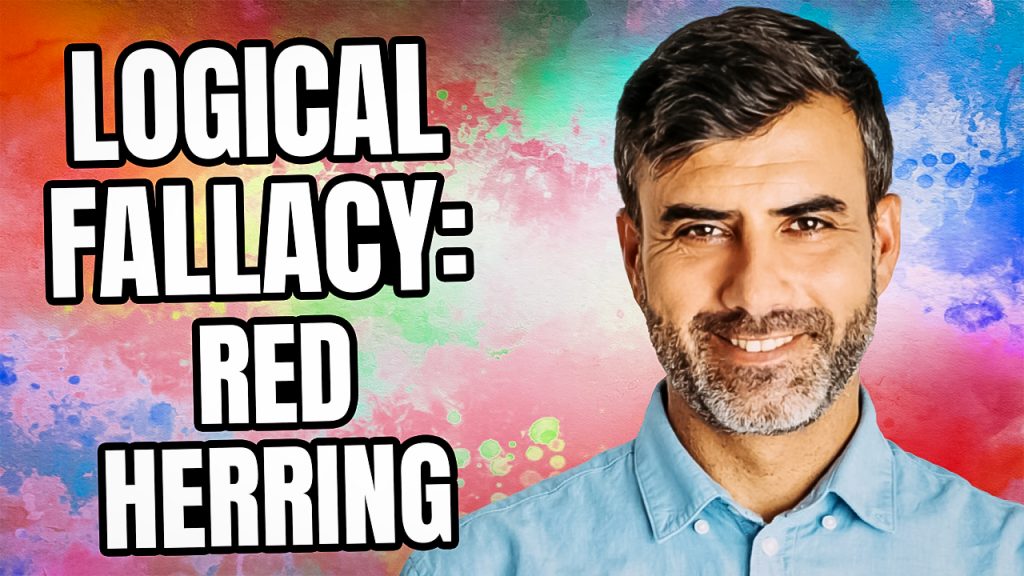Logical Fallacy: Red Herring

A red herring is a type of logical fallacy that occurs when an argument is introduced to distract
from the original topic. Essentially, a red herring is a misleading or irrelevant piece of information
that is used to divert attention from the real issue. This type of fallacy is commonly used in
debates, discussions, and even in advertising and politics to steer the conversation away from
the main topic and towards another one that is easier to argue or defend. In this essay, we will
explore the nature of the red herring fallacy, some common examples of this fallacy, and how to
avoid it.
The term “red herring” comes from the practice of using a strong-smelling fish to distract hunting
dogs from the scent of their prey. In the same way, a red herring argument is used to distract
people from the main topic of discussion. Red herring fallacies are often used to manipulate the
emotions of the audience and to create a false impression of the argument. This fallacy can be
used intentionally or unintentionally, but it can cause confusion and derail the
conversation.
One of the most common examples of the red herring fallacy is in politics. Politicians often use
this fallacy to divert attention away from their own shortcomings and towards another issue that
is easier to defend. For example, if a politician is accused of corruption, they may redirect the
conversation towards a different topic, such as the need for increased funding for education or
healthcare. By doing so, they hope to steer the conversation away from the topic of corruption
and towards something that is less damaging to their reputation.
Another example of the red herring fallacy is in advertising. Advertisers often use this fallacy to
distract from the flaws of their products and instead focus on a different, positive aspect. For
example, an ad for a fast-food chain might show images of happy families enjoying their meals
together, even though the food itself may be unhealthy and low-quality. By using a red herring,
the ad distracts from the real issue of the quality of the food and instead creates a positive
emotional response in the viewer.
There are several different types of red herring fallacies. One of the most common is the straw
man fallacy, in which an argument is misrepresented or distorted in order to make it easier to
attack. Another type is the ad hominem fallacy, in which the character of the person making the
argument is attacked rather than the argument itself. In both cases, the goal is to distract from
the real issue and create a false impression of the argument.
To avoid the red herring fallacy, it is important to stay focused on the main topic of discussion
and to recognize when an argument is being diverted. One way to do this is to ask questions
and challenge the argument when it seems to be straying from the main point. It is also
important to avoid using red herrings yourself and to stick to the facts and evidence when
making an argument. By doing so, you can help ensure that the conversation stays focused and
productive, and that the real issues are addressed.
In conclusion, the red herring fallacy is a common and often effective way of distracting from the
main topic of discussion. It is used in politics, advertising, and other areas of life to create a
false impression of an argument and to divert attention away from the real issues. To avoid this
fallacy, it is important to stay focused on the main topic, to recognize when an argument is being
diverted, and to challenge the use of red herrings when necessary. By doing so, we can ensure
that the conversation stays on track and that the real issues are addressed in a productive and
meaningful way.
This Post is Brought To You By BetterHelp